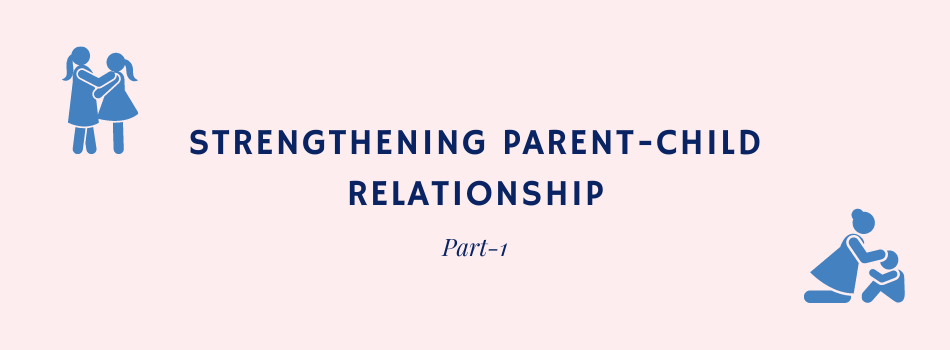
Let's Talk: A session on sensitive communication
Shruti Chatterjee
Counselor
Ms. Shruti Chatterjee joined Prerana as a Counsellor in 2020. She works with children who avail services of Prerana’s Night Care Centre, children who have been placed in Child Care Institutions as children in need of care and protection and with children at Naunihal, a Children’s Home for girls managed by Prerana. She also works with parents and other caregivers, both at the individual level and as a group.
Prerana’s team regularly conducts meetings with parents of the children with whom we work. In case of the red-light areas, it has been observed that it is the mother who takes on the responsibilities of parenting, hence the organization often facilitates Mothers’ Meetings. These meetings often feature discussions on issues of health (both physical and mental), their rights as citizens, awareness on social security documents, and aspects of parenting, sensitive communications, education, and government schemes. In February, I facilitated a session on the importance of sensitive communication between parents and children. The objective of the session was to introduce ways for mothers to interact with children empathetically and sensitively.
The session began with an ice-breaker activity to help the participants feel that they were in a safe space. They were given instructions to draw some shapes as directed, without questioning and referring to each other. By the end of the activity, the mothers had drawn shapes scattered throughout the paper, while I showed them that I had wanted them to draw a cat using the instructed shapes. The purpose was to help them understand the importance of effective communication, especially with their children.
Next, I asked the mothers if they could point at any problems that their children may be facing in their everyday lives. Some mothers spoke about problems like children can be mischievous, do not study, are glued to the television/mobile phones, etc. I shared that the situations that were listed were behavior of their children and not problems per se. During the discussion, I added that it was important for parents to recognize that children too have their share of worries and problems. For a parent, sparing some time to listen intently and ask the children how their day was could help parents understand the challenges the child encounters daily. Some mothers who were able to resonate with the above suggestion mentioned issues like peer pressure, anxiety, while most mothers found it challenging to understand that children could have issues and worries. I observed that what children say or share is heard superficially by adults or not paid attention to and shared it with the mothers that this could leave children feeling unimportant.
Next, I asked the mothers about their responses when their children would not listen to them. Most mothers shared that they gave harsh punishments, including physical violence. A woman shared that when her child (studying in 10th standard) did not study, she would tell the child to sit outside the room and not give them one meal of the day. She further added that she felt guilty for doing so and called her child after she had left for work to check if everything was well. I shared the need to be calm in such situations, before punishing the child especially when they’re going through feelings often described as “frustration”.
Some mothers spoke about giving the ‘silent treatment’ to their children. In the discussion, it was reflected that children often get more agitated and feel neglected when their mothers do not talk to them. Children also feel unable to share future concerns or worries as they start thinking that their parent might stop talking to them after sharing it. Some mothers shared that they do feel bad when they do not talk to their children and try to make up for it later. However, they shared that due to the nature of their work, they spend less time with their children and are unable to discuss and resolve the problems between them. To compensate, mothers often treat their children with material incentives like khau (food) or money. At times, children learn from parents to compensate bad behavior by materialistic objects and learn to give little importance to one’s emotions.
The issue of discrimination was also raised in the session. A mother shared that her daughter felt discriminated against, as compared to her younger brother. She shared that on her daughter’s birthday, she had got a smaller cake, but a comparatively bigger birthday party was thrown for her son. I shared that many times, as parents, we unknowingly tend to discriminate between children and that leaves a lasting impression on them. I suggested that they be mindful of how they treated all of their children.
Lastly, we discussed ideas with regards to positive and negative reinforcement strategies and different ways of displaying affection to children. An effective communication (verbal or non-verbal) helps children express themselves and develop empathy for others. This also helps the child to feel safe and valued. The highlight of the session was to help the women understand how spending quality time with the children could benefit their relationship and improve the emotional well-being of the children.
Please find the second part of the blog here
To be or not to be? Questions on motherhood searching answers
Over the past few years, Prerana’s Anti-trafficking Center (ATC) has been instrumental in documenting challenges while working on anti-human trafficking Read more
Over the past few years, Prerana’s Anti-trafficking Center (ATC) has been instrumental in documenting challenges while working on anti-human trafficking Read more



